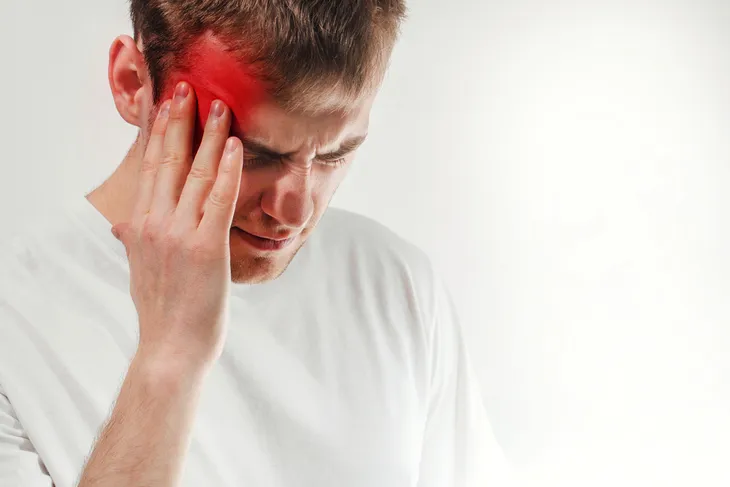There are many types of headaches, and they’re all a pain. However, in the case of a sinus headache, you may mistakenly think you have a sinus infection – as the symptoms are pretty similar.
Even if you’ve been diagnosed with sinusitis (a sinus infection), your headache may not be related to the sinuses at all, notes the Mayo Clinic. It’s good to be able to distinguish between them, so you can best address the headache. Here are six signs and symptoms of a true sinus headache…
Sinus Infections
While stress can literally give you a headache in some cases (think tension headaches), sinus headaches aren’t commonly associated with this trigger. The University of Maryland Medical Center says sinus headaches are caused by sinus congestion and inflammation (from an infection including cold or flu).
Other possible causes of a sinus headache include seasonal allergies like hay fever, says the source. “Although a cold is the most common culprit, sinusitis can be caused by anything that prevents the sinuses from draining,” it adds.
Fevers are Common
WebMD says that sinus headaches can often lead to a fever, which is not as commonly the case for other types of headaches. “If a sinus blockage, such as an infection, really is the cause, you’ll likely have a fever,” it explains. Your body develops a fever as a way to fight the infection.
While migraines and tension headaches are often mistaken for sinus headaches, you should let a doctor sort out the cause, it notes. But as we mentioned before, even having a sinus infection diagnosis doesn’t mean you have a sinus headache – but having a fever might help a doctor make the distinction.
Pain When There’s Strain
The pain from a sinus headache will likely worsen when you’re bending forwards or “straining,” says MedicineNet.com, which could mean when you’re lifting a child or gardening (which can actually be quite strenuous).
It’s also important to note that the pain from a sinus headache won’t be at the top or back of your head; it’ll be concentrated in the face – where the sinus cavities are. That means you’ll likely feel pain radiating to the temples, forehead, or cheeks, notes the source. You may even feel aching in your teeth.
Fatigue
The Reporter – a publication of the Vanderbilt University Medical Center – says that fatigue is a “strong indicator” of a sinus infection, which can lead to a sinus headache according to several other sources.
However, the Vanderbilt University article goes as far as to say that fatigue is a much bigger indicator of a sinus infection than headache pain and pressure. A study detailed in the article notes of 5-symptoms correlated with the severity of a sinus infection, headache and pressure were not among them based on CT scan findings. The main indicators include fatigue, nasal blockage, and a decreased sense of smell, while headaches and pressure are “less reliable predictors of a sinus infection,” it adds.
Not Associated With Nausea
The Mayo Clinic explains there’s an important distinction between a migraine headache and a sinus headache – a headache triggered by the sinuses doesn’t usually lead to nausea or vomiting like other headaches can.
Those who are suffering from a migraine will often also be extra sensitive to loud noises or bright light – which is not the case if you’re suffering from a sinus headache, it adds.
There are Natural Treatments
The good news for sinus headache sufferers is that you can usually provide relief from the comfort of your own home – or even at work. EverydayHealth.com lists 10-natural methods for reducing sinus pain and congestion, which could help take care of your sinus headache.
Some of the suggestions include flushing your nasal passages with a saline spray or wash; taking bromelain supplements; inhaling steam with drops of eucalyptus; drinking more water; applying warm compresses; or even eating spicy foods to clear out the blockage. If none of the remedies seem to work, you may be dealing with another type of headache… and over-the-counter pain medications aren’t a bad choice if you need quick relief. However, it might be wise to consult a doctor if you have recurring headaches.









